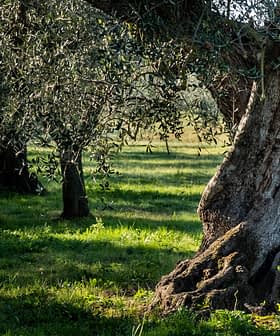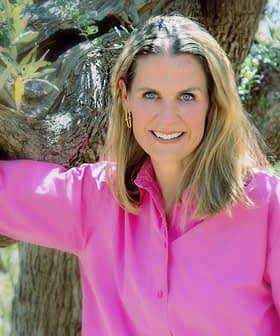Australia’s consumer watchdog has fined a local olive oil producer for alleged mislabeling and promises more action on fake extra virgin olive oils.
On May 8, The Big Olive Company paid two infringement notices totalling $13,200 (US $12,900) for labelling products as ‘extra virgin olive oil’ that the Australian Competition and Consumer Commission found were not.
The South Australian company was also in the news back in February when a TV program claimed testing showed its olive oils were substandard and old.
Tests commissioned by the ACCC found last December that samples from a batch of the company’s “Oz Olio” had a free fatty acid level of 0.9 percent while under various olive oil trade standards for extra virgin olive oil, including the voluntary Australian one, the maximum is 0.8 percent.
A high free fatty acid content indicates that the olives used to make the oil were old, damaged or otherwise of poor quality and the oil was not extra virgin olive oil at the time of bottling, the ACCC said in a press release.
“Consumers should be able to trust that what’s on the label is what’s in the bottle,” ACCC chairman Rod Sims said.
Australian Standard
The ACCC commissioned independent testing of seven oils — four imported and three domestically-produced — after complaints from the Australian Olive Association (AOA) that many oils sold in Australia as extra virgin olive oil weren’t genuine. The other oils tested had free fatty acids levels within the acceptable limits.
The analysis included peroxide value, UV absorbance, 1,2‑diacylglycerols, pyropheophytin a, stigmastadiene content, wax content, fatty acids profile and sterols but, according to the Weekly Times, Sims said the ACCC believed only the free fatty acids part of the international and Australian olive oil standards would hold up in court.
“Mr. Sims said the public would have to accept the Australian standard as its benchmark before the ACCC could begin making prosecutions based on that standard, unless the government made the standard law,” it reported, adding that Australian Olive Association CEO Lisa Rowntree was “angry” the ACCC did not use the voluntary Australian standard as its test reference.
The ACCC says it is considering “broader concerns raised by the AOA about extra virgin olive oil claims and the use of other descriptors of olive oil products” and has contacted it about ensuring “greater clarity in labeling and that consumers are able to make informed purchasing decisions.”
The fine was under section 29(1)(a) of the Australian Consumer Law, which prohibits false or misleading representations that goods are of a particular standard, quality, value, grade, or composition.
The Big Olive Company has yet to respond to a request for comment. Though it has paid the infringement fine, this is not an admission of a contravention of Australian Consumer Law.
A real estate site is advertising a 1103ha of Big Olive property — which includes 100,000 olive trees, a “state-of-the art processing facility” and three established brands — as for sale.
Kailis Organic Olive Farms Attracting Asian Interest
Also on the market in Australia are four rural properties from the failed Kailis Organic Olive Group. According to Property Observer, receivers KordaMentha say there is “strong interest in the farms from local syndicates of high-net-worth individuals, super funds and Asian investors.”
Combined, the four properties have a value of around $20 million (US $19.54m) but can be bought separately, it says.
Aussie harvest down this year
Meanwhile, Rowntree separately told the Weekly Times the harvest was in full swing across southern Australia’s olive groves, with growers reporting yields up to 60 per cent lower than last year but good oil quality and higher extraction rates.








